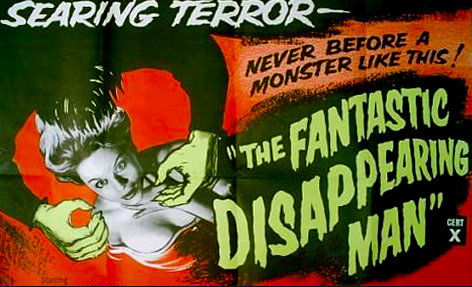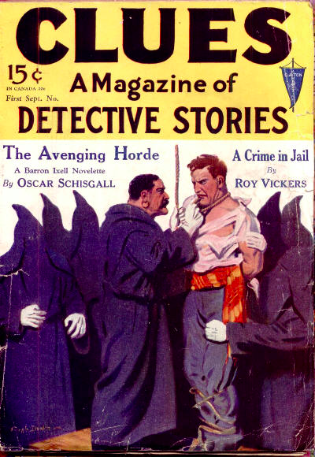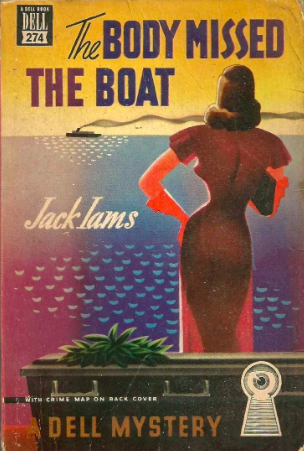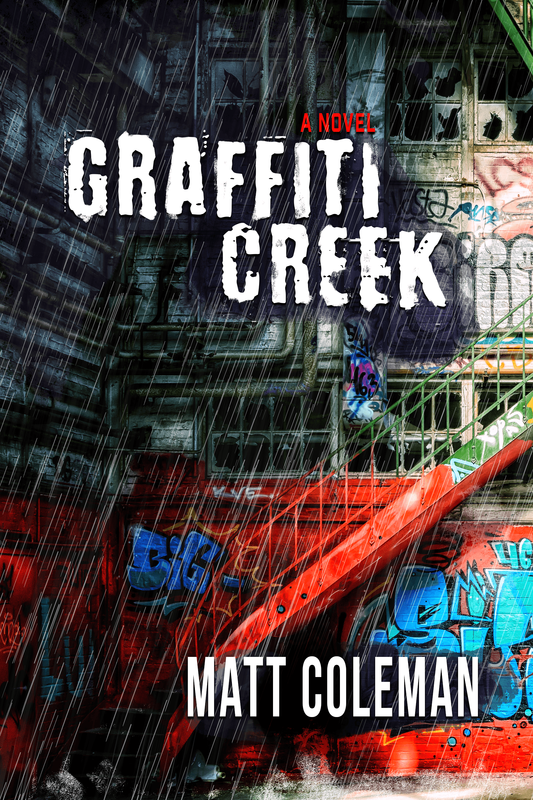|
Part One: The Disappearance “I didn’t want a peer group. I didn’t want to teach. I wanted to write. That all. And a whole lot of my favorite writers … learned the craft by sitting at the desk and putting in the work. I’ve never been scared of the work.” It was three years ago and I wasn’t missing yet. Quite the contrary. My first book had been acquired by an indie publisher. They were helping me understand web presence and self marketing--trying to create myself as a brand and all that. So I got pretty active online. I interviewed other writers and wrote humorous little blog posts about television and rap songs and cartoons and crying during gum commercials. I landed a few short stories in some web publications and a print publication or two. I was doing okay. In fact, three years ago at this time (based on a glance back at my Twitter and Facebook history), I had active conversations going on with an Edgar Award nominee, the best selling writer of the year (not named Harper Lee or E.L. James), and a National Book Award finalist. But I’m so bad at it. You know, making friends and having interactions. All that. I’m even worse in real life. I currently have a group chat going in my text strands which I started … but in which I have never since participated. Just dropped it and walked away like an action movie cigar on a trail of gunpowder. (That doesn’t work, you say? Check my text strand, Jamie Hyneman.) However, while I may be horrible at making, having, and keeping friends, I’ve always been great at acquaintancing. The wheelhouse of my efforts to connect has always rested firmly in the hour-long conversation with my exterminator about house renovation or a multi-appearance, ongoing dialogue with the cashier at Exxon about selecting godparents for his children. You know. Normal things. So my online interactions were a touch better. Chatting with David Joy about whiskey and a desire to write which greatly overshadowed any wish to be a part of some writing community. Talking to Jason Reynolds about a distaste for boring books. These were exactly the types of exchanges I could welcome in my life. And they all built up to the release of my first book. I even leveraged those acquaintances into a nice book blurb or two. Sara Lippmann called it “at once outlandish and heartfelt, hilarious and deeply macabre … with colorful, lively prose and crisp dialogue.” Wow, right? So promising. By January, I was being listed by Writer’s Bone along with books by Eric Beetner and Craig Johnson. And by the summer of 2017, I had all but disappeared. Part Two: The First Clue “The essential state of mind of the author is the simultaneous belief that one is the greatest writer alive and a complete fraud.” --Ron Currie, Jr. from an interview I conducted with him on Twitter which he probably doesn’t remember doing I had been missing for a while by the time I disappeared. I wrote that about a character in my first book without realizing that it applied to me, too. Maybe for even longer than I realized. As much as I, like any of us, wanted to be the Lindbergh baby, what I really am is a Craigslist prostitute. (No disrespect … does that make it worse? Saying “no disrespect?” It’s sincere, I swear.) When I went missing, there was no fanfare, no search party. What little I was posting onto the Internet had dwindled over the course of 2017, diminishing to nothing by July. But I was the kind of missing person who is not missed by the world. The perfect victim kind. At best, I was in the victim category of the woman whose husband went a week before reporting her missing because she was a free-spirit type, it was the 60s, and they lived in Hawaii at the time. Anyone who even noticed I disappeared responded, I am sure, with a shrug of the shoulders and a “these things happen” or a “I’m sure he’ll come back when he’s ready.” The first clue rested in the circle of writers I was trying to push my way into. My online “friends” (read: acquaintances no more aware of our “friendship” than the bug guy or Exxon clerk) included a veritable who’s who of both popular and indie lit. While I would never presume to be pals with any of these people, they were all kind and welcoming and friendly. Classy people, all of them. It was me who didn’t belong. I was beginning to feel it. When I was in the marching band in high school, there were always a few kids who would hang around with the band but never played an instrument. Either they weren’t even officially in band or they stuck to things like the triangle. In high school, I played the drums. I was by no means “cool.” But I was “band cool.” In the world of writers, I quickly looked down to see the metaphorical triangle in my hands. Then the existentialism of the realization began to bleed. One of those brilliant writers I interviewed (Ron Currie) once told me the essential state of mind of the author is the simultaneous belief that one is the greatest writer alive and a complete fraud. The latter half of the equation had me completely fucked up. Self doubt is more than a rash or a worm or even a cancer. It’s more like food poisoning. If you’ve never experienced it, you are generally quick to dismiss it or even laugh it off. But once it happens to you. Really happens. One good time. Well, you’ll never laugh about it again, that’s for sure. Mine came from a bucket of popcorn in a dollar movie theater. I vomited for five straight hours. At first, you grimace at the feeling and try to make yourself believe it’s nothing--a hiccup of gas or a passing flicker of nausea. But within mere seconds, it encompasses your entire body, mind, and soul. Yes. Soul. In those moments of churning and heaving, wallowing in the fugue state of buttered popcorn stench and cold porcelain, I would have bartered my soul for relief. That’s self doubt. And it moved from writing to my day job and fatherhood and my marriage. And there it was, wasn’t it? My marriage. When you write a partially autobiographical novel, you essentially enter into a contract with your readers to open yourself up. I created this mystery around Ellis Mazer, with a plan to carry him through as my detective in a series. And Ellis Mazer is me. The mysteries are fictional, but his life is mine. When I wrote Juggling Kittens, I had been married for the better part of fifteen years and was remembering the first years of marriage. When the book came out, an eighteen year marriage had fallen apart and ended. My follow-up novel kept stalling out in the same place: Ellis rolled through the opening few chapters during which he came face to face with another body and a new mystery; but when he came home and the focus shifted to his family, I hit a wall. The reality of his future was beginning to glimmer on my fictional horizon (as douche-y as that sentence sounds). I now know I wasn’t ready to face it--to begin allowing the cracks to show in the fictional marriage based on my very real former marriage. And it primed the pump of my self doubt. Because any “real” writer would lean into the cathartic nature of putting experience to paper and come out with some kind of literary spun fucking gold. I was barely treading water with the book publicity, I was playing at Divorced Dad with every other week parenting, and I had dick of a follow-up manuscript to pitch around while my name was possibly out there a little. I was quickly moving from missing to presumed dead. But like any good mystery, this one has a classic two-body plot. Part Three: The Second Body “I don’t believe in the ‘storyteller’s responsibility.’" --Porochista Khakpour from an interview I conducted with her on Twitter which she probably doesn’t remember doing My ex-wife and I separated in January of 2016. We were officially divorced in June of the same year. And in October of 2016, Juggling Kittens was released. By March or April of 2017, I was steadily fading out of the public eye after trying my damndest to spread the good news of my little book. In July of 2017, my ex-wife committed suicide. Suicide really is the glitter of mourning and acceptance. And, since we all know glitter is the herpes of the crafts world, that means suicide never fully goes away and flares up from time to time in horribly awkward situations. The most difficult conversation I have ever been faced with was not telling my daughters their mother had died. Maybe because of shock or adrenaline or any number of reasons, that conversation ranks about third. Numbers one and two on the list were when I told my daughters (separately and individually) the manner in which their mother died. Incidentally, number four would be when my youngest daughter mentally blocked the nature of her mother’s death and I had to tell her all over again several months later. Yep. Just like fucking herpes. But I get it. No one wants to accept suicide. Acceptance means cycling through reasons for a loved one’s suicide, and sooner or later, no matter the circumstances, you turn up in those reasons. I know I did. I feel certain both of my daughters did, too. We all want to insert ourselves into the story, however horrible the story may be. But for me, as counterintuitive as it may sound, this is where my own mystery took a bit of an unexpected positive turn. While logic would tell you an event like this may have buried me under my blossoming self doubt, the opposite actually happened. I liken it to getting left behind by a boat. You can contemplate all the reasons you got left and why the boat took off and what you might have done differently. But all that thinking probably happens while you drown. The truly logical thing to do is just start fucking swimming. So swimming is where the story begins anew. Swimming means learning to parent every week, which may sound silly, but any divorced parent can tell you about the joy of the off week. Don’t judge me. I love my kids, but, man, those off weeks. They were glorious. Single parenting is for the birds. It’s super hard. Like, really, really hard. So hard. But I am beginning to come to grips with myself as a dad--mentally reciting the alcoholic mantra about accepting the things I cannot change blah, blah. I may not be perfect, but you know what? Those little assholes aren’t perfect either. So we will just be imperfect together. I love them. They love me. And one day they will talk about how I fucked them up just like we all talk about something our parents did to us. It’s all half bullshit and half true. Family is weird. But I’ve gotten them a good jumpstart on therapy, so it’ll all be okay. And swimming means coping with my former marriage. Delving into the suicide meant acknowledging the demons my ex-wife faced--seeing them for what they were and beginning to understand what they did to my marriage. I didn’t absolve myself from blame in the failure of my marriage, but I definitely came to a healthier understanding of exactly what went wrong. Sometimes knowing where you took a wrong turn does not mean you wouldn’t take the same wrong turn if you had another chance. It just means you know where it happened. And maybe that’s enough. When I was interviewing writers, the only time I almost stepped in it was with Porochista Khakpour. I was so nervous when she agreed to be interviewed, because I knew she wouldn’t hesitate in slapping me around if I asked a stupid question. One of the things I admire about her is her ability to stand up to anyone anytime anywhere. For the record, she is one of the nicest people I ever interviewed. But I did misstep a little. I asked her a question about the “storyteller’s responsibility,” and she let me know immediately she didn’t like the wording. It was a bullshit label she didn’t believe in, basically. And I was faced with scrambling to make sure I had not opened up something leading to some sort of debate which I 100% KNEW I would LOSE. And lose big. But looking back, it leaves me thinking about my fears. Those fears of how I would handle writing about my divorce and now single parenting and suicide and loss and grief. I was so afraid, not because I didn’t want to be laid bare. I wasn’t afraid of doing it. I was afraid of doing it wrong. I felt a sense of responsibility to whatever handful of readers I may have to get it all so right. To give them some sort of outlet for their own grief or struggles or pain. I had to provide them some window back into themselves just like all of these great writers had done for me. But when I thought back to my one interview with Porochista, I sort of called bullshit on myself. I don’t have fuck all of a responsibility. I don’t have to frame this in a way any of you mother fuckers can learn from it or feel something. I just need to write. Because I like to write. Part Four: Solving the Case “Dynamic, interesting, funny, tortured, and most times downright weird characters. Then a DOPE plot.” --Jason Reynolds on what keeps a book from being boring from an interview I conducted with him on Twitter which he probably doesn’t remember doing I can only assume the high school-college transition years are impressionable. If you can recall, the time around 1995 (when I graduated from high school) was the Golden Era for the plot twist. The Usual Suspects, The Crying Game, The Sixth Sense. There was a run of several years there where any movie which fancied itself sort of a mystery had a mind-blowing plot twist. They obviously imprinted on me, because for a long while I felt the need to come up with a big twist for anything I wrote. And there is a reason you’ve never read any of it. But, having said that, this mystery of my disappearance definitely had its own Keyser Söze moment.
When the Porochista comment hit me so hard, I had a bit of an epiphany. I came to this understanding that while none of these writers is going to be making me a friendship bracelet anytime soon, it doesn’t mean I haven’t learned from my connections with them. Just like my four-year-long “friendship” with Matthew Zardari, the Exxon guy, they may not remember me, but I sure as hell remember them. And I learned all I need to know about finding myself again. David Joy taught me that it’s not about joining some community of writers. I’m not doing this to make friends. I’m not saying it’s a bad thing to make friends or that I shouldn’t try a little harder. But it is most clearly not the reason I started writing in the first place, and it shouldn’t be the reason I continue doing it. I think David said when it stops being fun, he reckons he’ll hang it up (for the record, I don’t think he said “reckons,” but I know he will appreciate me claiming he did), and I figure I should probably look at it about the same way. Sara Lippmann taught me what I may do relatively well. When I look back at her blurb for Juggling Kittens, I am reminded what I like to write. I enjoy writing mysteries and comedies. I like being hilarious and macabre. Sometimes I can be one without the other, but I’m always operating somewhere within one or both. So when I started writing again, maybe it wasn’t opening the wounds of my previous year, but it was mystery. And it was comedy. And now I have a crime novel about to release and a farce being produced in Dallas. Ron Currie, Jr., taught me it’s okay to feel like a fraud sometimes. But, more importantly, he taught me to remember the other side of that coin. I should also have some self-confidence. I didn’t get here by accident. I may not have the same level of success or talent as the people I was interviewing, and I probably never will. But I didn’t just stumble into anything either. I do have some talent. I can write. And I should write. When I feel like the best writer in the world, I should write until I start to feel like a fraud. And when I feel like a fraud, I should write even more. And Jason Reynolds taught me to not write boring books. It may be the most important lesson of all. Because you know what? The thought of writing about divorce and parenthood and suicide sort of bores me. Does that mean I will never write about it? No. But it means I won’t write about it until I can put it into a DOPE plot. And I’m sure I will. Eventually (spoiler alert), I imagine Ellis Mazer will get a divorce and deal with the suicide of his ex-wife. And when he does, I will deal with it again. Maybe it will be cathartic for me and maybe it will be life-affirming for some reader out there. I don’t know. What I do know is that it won’t be boring. It will probably be approached with some humor and it may even involve a mystery. Because that’s what I enjoy writing. And, as Porochista taught me, I do not have a responsibility to do anything different. So I’m back, I hope. I’m writing, and I am going to be trying to keep up with some online content. As I do, I will probably continue to explore some of the events of my past year. In the meantime, I’ve got a straight-up crime novel coming out (Graffiti Creek). It deals with none of this. I wrote it during a time I was really feeling some deep sorrow for events occurring in society around me. I think, in hindsight, I was feeling sorry for other people because I didn’t want to feel sorry for myself. But it’s a crime novel. I tried my best to not make it boring. And I’ll have a play coming out called Raptured: A Sex Farce At the End of the World. I think the title says it all. I co-wrote it with one of my very few actual friends, Matt Lyle. It was a blast, and it helped remind me how much I do actually enjoy writing. Here’s hoping some of you enjoy it, too.
2 Comments
4/22/2018 03:59:35 am
For the record, it's great to have you back and interacting with your fellow writers, even us who mainly lurk in the shadows. I can relate to your situations. I've taken the tragedy in my life and turned some of it into adventures for these weird people who only exist in my mind and, of course, are facets of my inner being. But there is always something left undone, an untidy piece of something I can't compress into the event stream of a book plot. But someday I might. Writing helps solve some problems but not others and certainly not all. I don't believe in coincidence. But if I ever was to believe in it, I'd say that solving a problem in life by writing about it in fiction is one.
Reply
Matt
4/22/2018 08:56:45 am
Thanks, Elgon. It's great to be back. I think for me it was so much easier when my writing was a subtle reflection of my life. It was fun and funny to have someone walk up and whisper, "Hey is that security guard supposed to be ...." We can all laugh about that. But, as a very private person, when I had some very public events (at least locally public) like the divorce and the suicide, things became all too real. Thinking about inserting those things into fiction felt horrifying. But I have solved problems through writing many times, as well. So it makes me want to gut up and at least try to face some of these problems in writing (even if it's just a little bit in a blog post).
Reply
Leave a Reply. |




 RSS Feed
RSS Feed